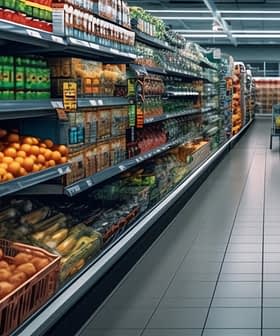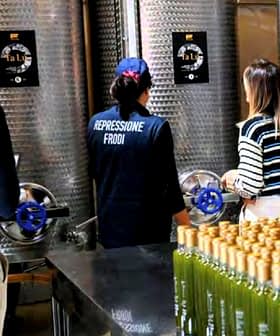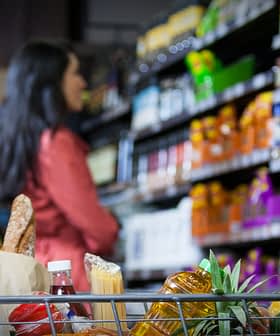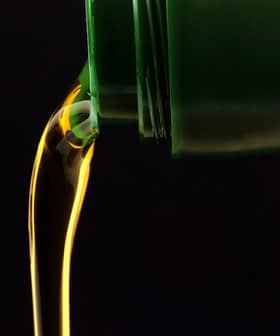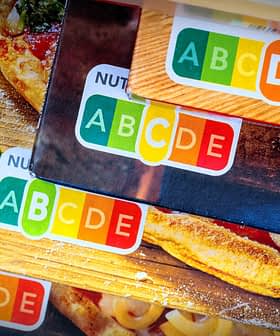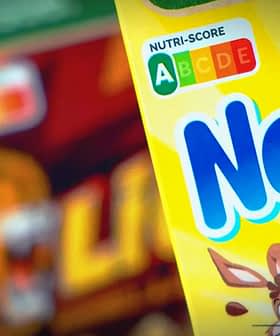 7.0K reads
7.0K readsEurope
Spanish Consumer Group Finds Nearly One in Three Olive Oils Mislabeled
A Spanish consumer organization found that nine out of 34 extra virgin olive oils tested were actually virgin grade, leading to threats of legal action by major olive oil companies. The OCU conducted tasting panel and physical/chemical tests on the olive oils, revealing that consumers were paying more for oils labeled as extra virgin when they were actually virgin grade. Despite the controversy, the OCU stands by its findings and consumer rights to accurate labeling.

A Spanish consumer organization which says that nine out of 34 extra virgin olive oils it tested were really virgin grade, and one was lampante, is standing by its claims despite threats of legal action by major olive oil companies.
Hojiblanca and ArteOliva were among those threatening to sue for damages. They were joined by others including Acesur, supermarket chain Condis and the Association of Edible Oil Bottling and Refining Companies (ANIERAC) in accusing the Organization of Consumers and Users (OCU) of not observing proper practice in its testing.
But the OCU says that it subjected the 34extra virgin olive oil and 6 virgin olive oil samples to a tasting panel and battery of physical and chemical tests.
While the majority of the samples were of the quality stated on their label, the OCU said its tests found that “nine brands misled consumers by selling an oil labeled as extra when it turned out to simply be virgin.” On average, consumers were paying €1 more for extra virgin than virgin olive oil, it said.
The nine samples came from plastic bottles from the Aliada, Condis, Consum, Coosur, Eroski, Hojiblanca and Ybarra brands, a glass bottle from Oli Sone (LIDL), and a tetra pack from Arteoliva.
Of the nine, all were rated “very bad” under OCU’s panel test results category but seven rated “very good” under what OCU called fruit quality analysis. The Coosur sample rated “good” under this category and the Aliada one “acceptable”.
Furthermore, anextra virgin olive oil from Maeva and a virgin olive oil from Olilán were found to be lampante“and therefore unsuitable for sale without being (chemically) refined” OCU said in a press release.
Relevant consumer and agriculture authorities in Spain have been informed of the results to investigate if any action should be taken.
Despite the problems identified, there are good quality products available at reasonable prices, OCU said. “With olive oil, as with many other products, a high price is not always indicative of quality.”
Hojiblanca and ArteOliva threaten legal action
In a press release, Hojiblanca said it would sue OCU for not complying with testing regulations such as on the number of samples to be taken and analysis protocol.
It also said stressed that it had “reliable inhouse and external testing results” — both by chemical analyis and tasting panels — proving that the category of its olive oil found by OCU to be virgin, was really EVOO.
An illegal analysis of a few bottles is not representative of millions of liters
“In no way do Hojiblanca, its member cooperatives and their thousands of olive farmers cheat or defraud anyone” it said.
Samples from an Hojiblanca brandextra virgin olive oil in a glass bottle and two samples from Cordoliva producsts, also from the Hojiblanca stable, were cleared by OCU, an Hojiblanca spokesman told Olive Oil Times.
“This is one of the reason we disagree. An illegal analysis of a few bottles is not representative of millions of liters” he said.
And Felipe Silvela, ArteOliva spokesman, tweeted that the company would also sue the OCU for damages. “ArteOliva won“t allow the OCU to unfairly ruin the prestige and integrity of this company” he said.
Consumer rights
The OCU did not respond to requests from Olive Oil Times for more information about its testing.
Hojiblanca made reference to the possibility of oils deteriorating under supermarket light.
But OCU Director Jose María Múgica said in a blog today that consumers have the right to know that the product they buy is what the label says it is — regardless of the length or conditions of its time on a supermarket shelf.

OCU Director Jose María Múgica
“We analyze products in the state in which they reach the consumer.”
“If they think they are buying extra virgin olive oil, then the bottle should contain extra virgin,not virgin or lampante” he said.
“And it should be extra virgin that they buy when they buy it, be it fresh from the mill or after months on the shelf.”
Reaction in Spain’s olive oil sector
While the recent rain is a reason for cheer in Spain’s beleaguered olive oil sector, there was an air of despondency in some social media circles yesterday amid the widespread publicity of this case.
While some producers said it was a welcome wake-up call, others said it was “sad and lamentable” and would harm both Spanish exports and domestic consumption.
Panel test
In its statement, Hojiblanca said that for some time the olive oil sector had been raising problems with the “uncertainty of the tasting panel method”.
The standardization of panel testing had been promised by the relevant authorities in the Andalusian regional and Spanish central governments and also by European Commissioner for Agriculture Dacian Cioloş as part of his Olive Oil Action Plan, it said.
Among other objectives, the latter plan “aimed to standardize these tasting panels precisely to avoid ‘varying results’ for the same product and thus also reports like this that in no way help the Spanish food sector, especially in these times of crisis” Hojiblanca said.
An EC Spokesman on Agriculture told Olive Oil Times today that in July this year the Member States “were invited to describe problems they have encountered with the functioning of the panel test and to propose solutions.”
“There have been no detailed responses so far and the commission has now sent out reminders” he said.


